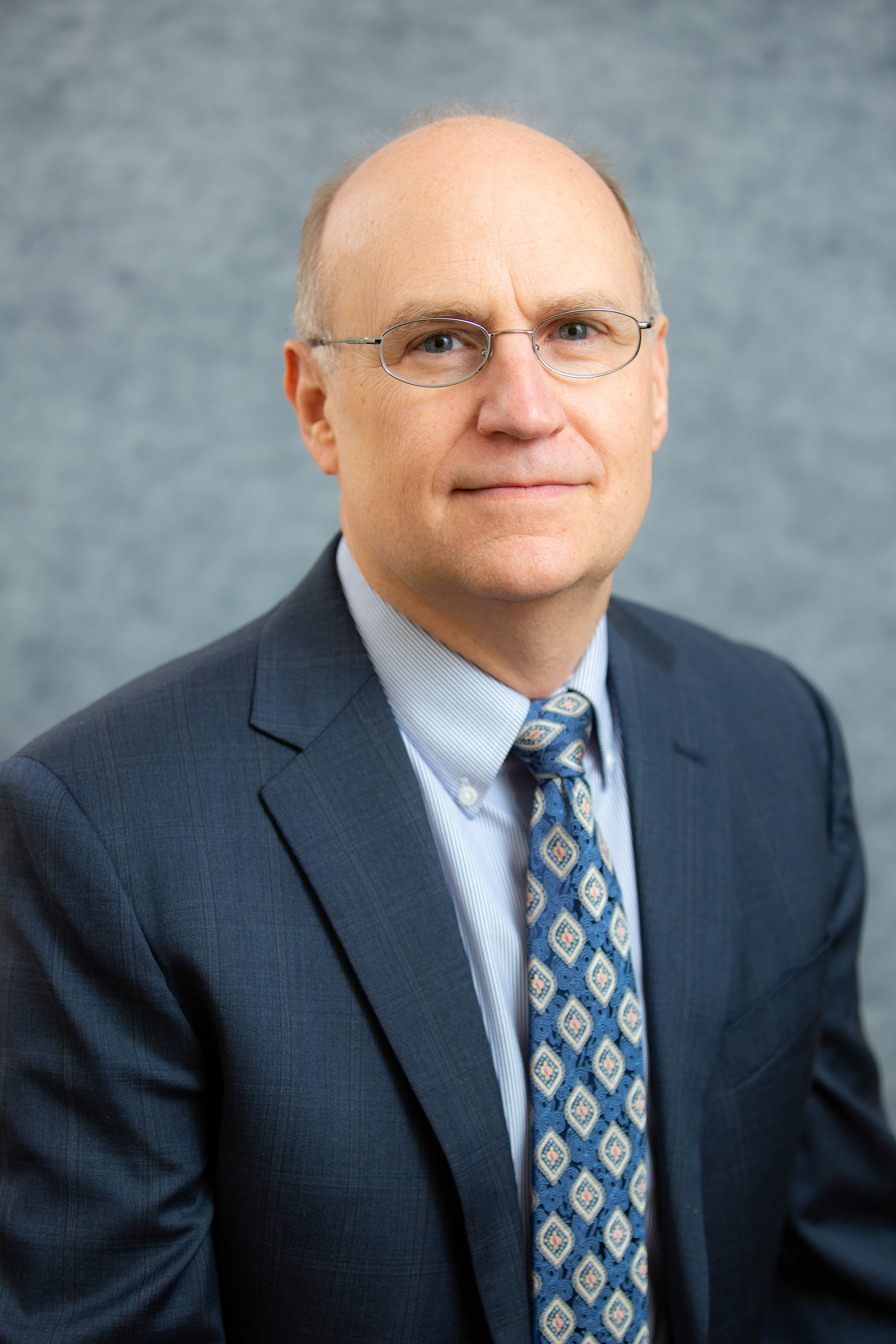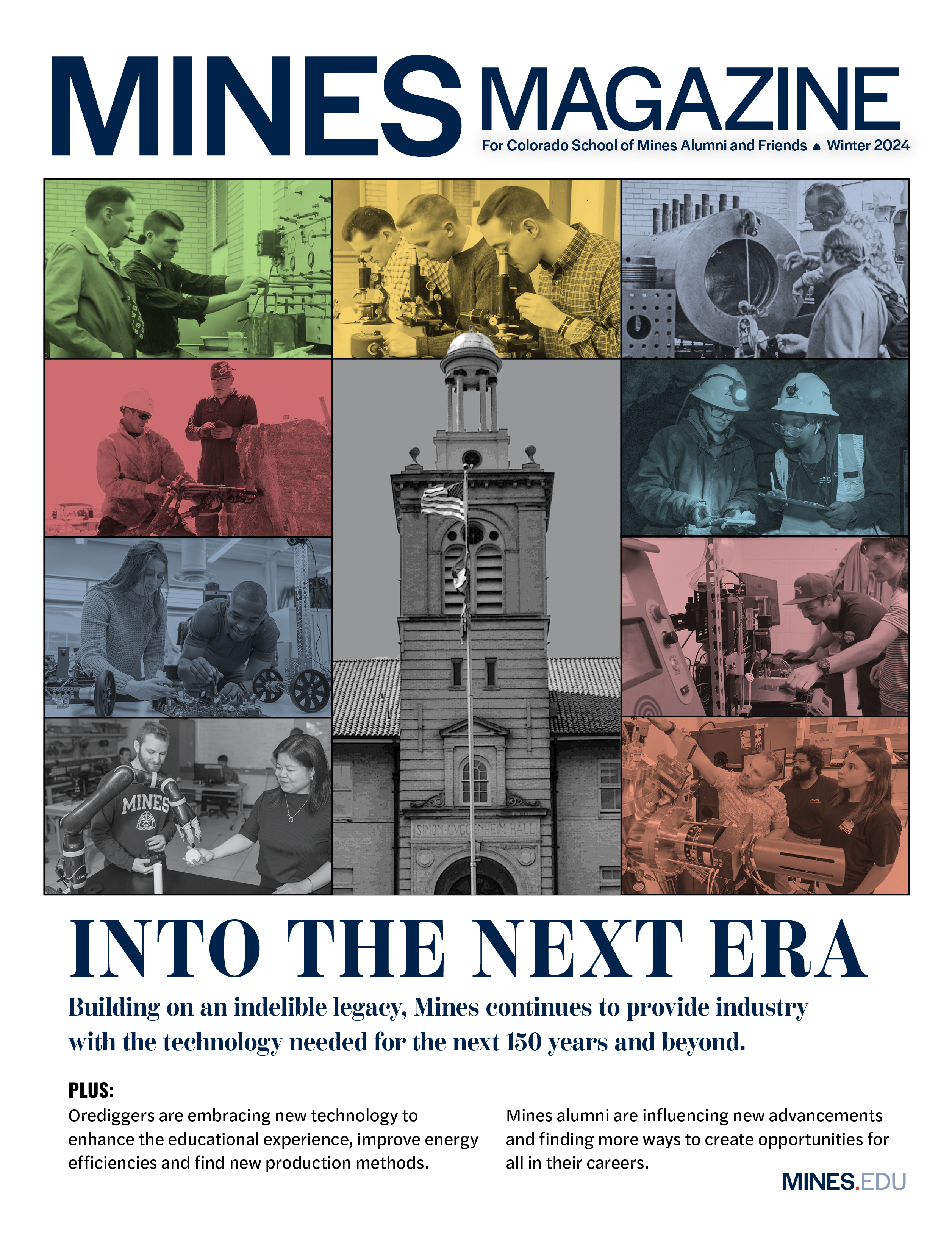Q&A with David Wright

Mines’ new assistant provost for international affairs, David Wright, is supporting the school’s internationalization efforts and sat down with Mines Magazine to talk about his vision, the importance of study abroad and how to build a strong global community.
Mines Magazine: What is your role as Mines’ assistant provost of international affairs?
David Wright: Right now, I would say my role is to aggregate all of the different functions that are going on around campus and to bring them together under one roof with clear communication to the campus community as to what these services are. There are all these pieces to international [services] that help the campus community, but traditionally you had to go to a different person, a different office, a different building to manage all these things. My role is to pull it all together and to create a clear and concise description of these services under one roof.
I don’t see that as my role forever, because within two years, we’ll be there, and we’re moving rather quickly. I’d really like to quadruple study abroad enrollments across campus—I’d like to see 10 percent of all Mines students going abroad. I don’t think that’s unrealistic. Right now, it’s probably about two percent, so I think going from two percent to 10 percent in five years or so seems about reasonable. It’s my 2025 goal.
I’d also like to see a campus where the faculty come to us for support for what we call faculty-led programming. The first instinct for a faculty member who wants to take a cohort abroad might not be to come [to the international office], so I really want to create a very strong faculty-led study abroad component. I think that will help us with our 10 percent, and I’d also like to make sure that Mines’ reputation around the world is as good as it can be.
Finally, I’d like to create a very strong strategic career plan and a new set of services for international students at Mines, because the number one recruiting tool for international students is actually word of mouth. There’s a ton of different ways to recruit international students, but the best one is making sure your students here have a great experience. They’ll tell their friends and family, and that’s 10 times more effective than us spending hundreds of thousands of dollars on recruitment fairs and marketing materials sent all around the world. If you concentrate on a great experience here, you’ll get more bang for your buck.
MM: What brought you to Mines?
DW: I’ve spent my career at large state institutions—University of Arizona, University of Texas—and these institutions have amazing engineering programs, and they’re very international. And for some reason, a large portion of my time in the field of international education has been working with these engineering programs.
Even though I worked [in a multidisciplinary way] across all colleges at these campuses, there was just something about the successes we had with engineering programs that was unique. To send 100 students abroad in the humanities or social sciences is a big deal, but if you can do that in engineering, that’s a really big deal. When this position opened up, it was an opportunity to focus very specifically on that engineering part of international education.
I think I have a lot to offer Mines—I’m not coming in thinking that this is a humanities or social sciences university. I know exactly what it means to get international students abroad, and it’s a challenge.
MM: What inspired you to work in this field, specifically with an international community?
DW: Most importantly, I think young people need to grow up in an environment where they understand that diversity and different ways of thinking are very common, and if you grow up in an environment where you’re not exposed to people who think differently than you do, it can lead to certain challenges in life.
I initially started out as a linguist teaching German at the University of Texas, and I felt that I had a really strong impact on students. I was able to help them overcome a monocultural way of thinking by teaching them how to speak another language, which really requires a resetting of your entire brain. You cannot look at another language as a one-to-one relationship to your native language—it just doesn’t exist. Learning another language is also training your brain to think differently. But when you combine that with different opportunities to go abroad and meet people who think and act differently and have different ways to solve problems, it opens up your mind and helps to improve the way you interact with people, the way you solve problems.
I started out in the field wanting to impact young people in that way, but as I did that, I realized I could have that same impact times 10 by working in international education. As a German professor, I would have classes of between 20 and 30 students and have a couple [students who studied abroad] per semester, but now in international education, I might send hundreds of students abroad a year. The majority come back saying, “Wow, this has been such a transformative experience. Thank you so much for your help.” So I’m basically getting at what I had done before but on a much larger scale.
I’ve counted the number of students that I’ve impacted or that I’ve helped go abroad, and I’m in the 10,000 range that I’ve worked with over my career so far. I don’t think any student has ever come back saying that it wasn’t the best semester they ever had.
MM: Do you think international students who come the U.S. to study have a similar experience to American students who study abroad?
DW: Yes, the same thing happens to them. They go through the same challenges. The programming we provide for them has to also help them and assume that it’s not a given. We work with all the international students and help them understand some of the provincial thinking that might exist in Golden. We help them understand some things that they can’t or maybe shouldn’t do or ways of thinking that creates opportunities for them to interact with local, domestic students, because they might instinctively gravitate toward students from their own country.
We’re constantly trying to pull the students out of their shells, so to speak. What we do with the international students here is the same that we’re trying to do with our domestic students by getting them to go abroad and prepare them properly.
MM: Why do you think internationalization is so important for a university?
DW: There’s a lot of different reasons. I think it’s our duty in higher education. We’re here to educate young people, and we’re here to prepare them for the world. It’s our obligation to prepare them to be in a complex society and live successfully in that type of world.
For those students who can’t go abroad, by bringing in international students, we’re contributing to domestic students’ global understanding. You might sit in a classroom studying statistics, and the person next to you is from Saudi Arabia and you may have to interact. Even though you didn’t go abroad, you still come away from that experience having a deeper understanding of how people might think in other cultures. So whether the person sitting next to you is from Malaysia, Saudi Arabia or Mexico, people are going to benefit. We’re here to help that.
MM: How do alumni fit into the idea of internationalization at Mines?
DW: Alumni can really help with this in a lot of different ways. We already have the Emerging Countries Undergraduate Scholarship for international students made up purely of Mines alumni who were impacted by the international students they met on campus. They want to make sure that international students on campus continue to be well taken care of. Alumni can create opportunities we wouldn’t be able to offer students without them.
Alumni can also help if they’re working in industry, and if we have good communication with them, we may be able to have a direct line for internships. If we mention to them, “Hey how would you like to have an electrical engineering student at the junior level come and spend some time with you over the summer?” They might think not only is this top talent, but it’s from their home institution. They’d probably appreciate someone from Texas Tech or Georgia Tech, but from their alma mater, that’s a big deal.
I think what we should be taking advantage of— in a positive sense—that they may be able to help our students get great positions abroad. Mines students do think about their careers, but a lot of the opportunities are domestic. If you say to a domestic student, go abroad or work here, the path of least resistance is here. It’s hard to get our domestic students abroad, so if we can work with alumni, we might be able to create a more even playing field between international and domestic internships.
It’s important to be in good communication with alumni, because they don’t have to donate a million dollars to make an impact. They can meet with a small group of students and talk about their experiences. There are so many ways they can contribute to the success of our students, and they have a built-in passion.


